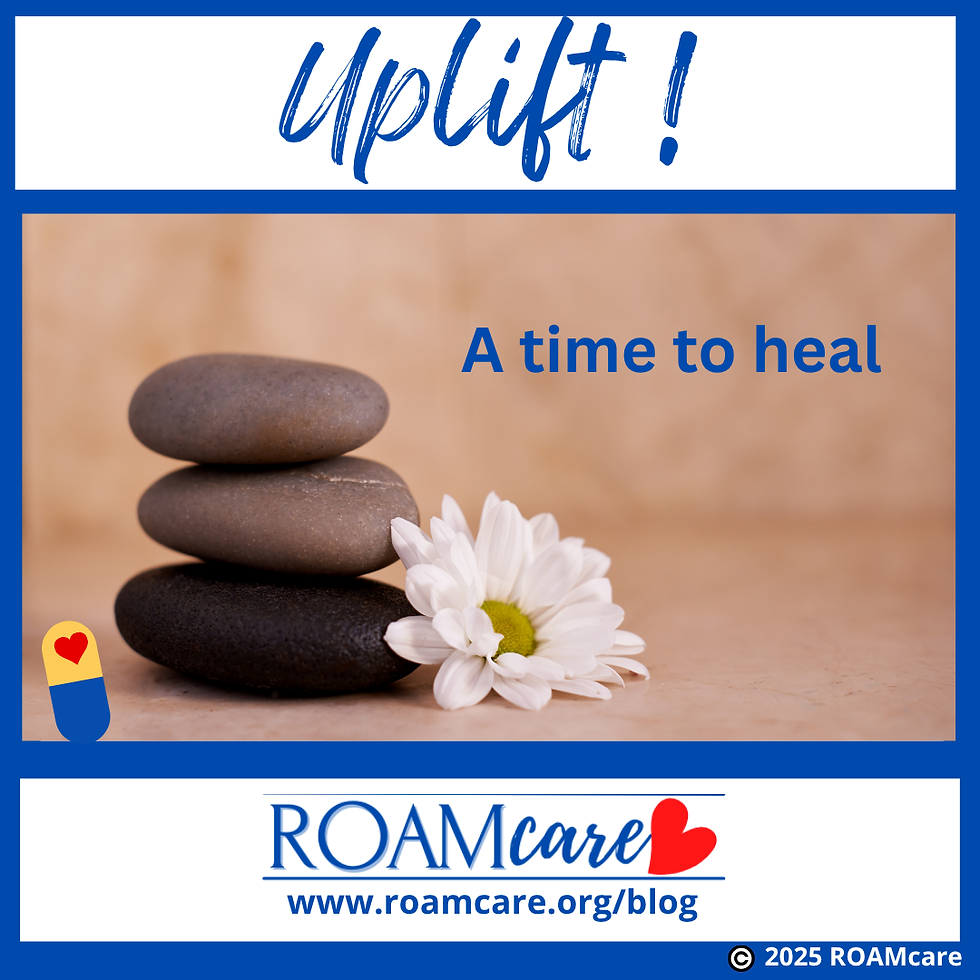Three Little Words
- roamcare
- Feb 1, 2023
- 3 min read
The Oxford English Dictionary lists over 750.000 words in the English language. There are about 171,000 words in common usage. According to a 2007 article in the journal Science, Mathias Mehl and others reported the average American adult speaks about 16,000 words a day. Of all those words, we don’t use many of them to convey our most important messages. Perhaps that is because we only have one word for the most important message of them all - love.
As we begin February, almost everybody’s first thought is of love. For as much that goes on during this, the shortest month of the year, Valentine’s Day holds a lot of attention. Valentine’s Day indeed is for lovers. But love is for so many more!
Humans are social beings. We relish, in fact we need to be with and interact with other humans. Our connections with each other are often born of need but grow because we want to explore and deepen those connections with other individuals, certain individuals. All of those connections are some form of love. The Greeks did it well. They coined seven different words for love, one for each type of love – Romantic, Affectionate, Familial, Selfless, Playful, Committed, and Self love, Eros, Philia, Storge. Agape, Ludus, Pragma, and Philautia respectively. Each type of love exhibits its own characteristics, but no one is more important, more special, more “loving” than any other. And yet, we seldom hear people verbally express their love for others except in the case of Romantic or sometimes Familial love. We are more likely to tell others we love our jobs, we love pizza, we love to travel, or we love swimming, than we are to tell our best friend, “I love you.”
Love is a source of motivation and strength for us as individuals. All types of love can induce the release of dopamine, adrenaline and norepinephrine, the so-called “feel-good chemicals.” But to affect that release, a relationship with a specific other person must be realized. Simplistically speaking, each form of love demonstrates a specific relationship. Eros involves a physical connection with others. Pragma is characterized by an emotional connection with another. Agape is known by its selfless, almost one-way flow of compassion and concern. But there is no pure form of each love. Some characteristics of each of the seven types of love can be found in all of the seven types of love. And thus, any love can improve a person’s self-worth, build trust, or strengthen family and social ties.
Another trait of humans is the need for physical contact. Reported by the National Institutes of Health is a 1995 study on the significance of physical contact that proposes four hugs per day as an antidote for depression, eight hugs per day to achieve mental stability and twelve hugs per day to possibly affect real psychological growth. We see people engaging more universally in hugging throughout the seven love spectrum. Family members hug each other, care givers hug their charges, friends hug their friends!
We suggest that hugging is an outward sign of love. People respond positively to hugs just as they would to any other indication they are loved, whether a kiss, a physical touch, a clasped hand-shake, a warm smile, or a verbal acknowledgement that they are loved – being told, “I love you!!”
As we begin February and almost everybody’s first thought is of love, let us consider those we love with all types of love, and tell them we love them. If we’re willing to say so to a large pizza it should be easy to admit it to our loving, living connections, no matter what type of love we feel for them. It's just three little words out of so many you will say today.





There is never too many times to speak of loving others. At a time in history when people are so afraid, angry, resentful, and hurt, being able to love others well without expecting anything in return is a gift we can give others. And if others are willing to love back, the connection is complete. Wonderfully written, you two. Choosing to say "I love you" can lighten any heart; it can certainly lighten someone else's day.